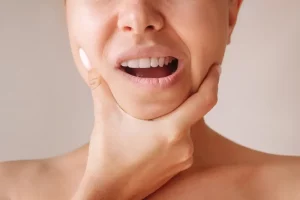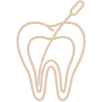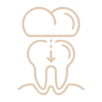When is a Dental Emergency an Actual Emergency?
Uncategorized
In the realm of oral health, emergencies arise unexpectedly, prompting the need for immediate attention. However, discerning when a dental issue constitutes a genuine emergency is paramount. This blog will give an in-depth exploration of the indicators that distinguish routine dental concerns from true emergencies. It will empower you to make intelligent decisions about contacting emergency dentists for urgent care.
Severe Tooth Pain:

Dental pain, when severe and persistent, serves as a critical signal of an underlying issue that demands immediate attention. Whether stemming from an abscess or a fractured tooth, intense discomfort should not be ignored. Seeking prompt dental care ensures a thorough diagnosis and targeted treatment. It will help to alleviate pain and prevent further complications. If you are unsure if you need a dentist or a doctor, use this symptom checker or contact our team at any time, 24/7.
Trauma and Injury:
Accidents can cause dental injuries that necessitate swift intervention. A knocked-out tooth, a fractured structure, or dislodged dental work are scenarios where immediate action is paramount. The golden hour following an injury significantly influences the outcome. It makes urgent dental care instrumental in assessing damage, preventing complications, and potentially salvaging a tooth.
Swelling and Abscesses:
Facial swelling, particularly in the gums or jaw, accompanied by intense pain, may signify the presence of an abscess. It’s an infection demanding immediate attention. Neglecting such conditions can lead to severe consequences. So, you need dental intervention to address the infection and curtail its potential spread.
Bleeding Gums:

While minor bleeding during oral care is commonplace, persistent, or excessive bleeding is cause for concern. It may indicate an underlying issue, such as gum disease or an injury. When at-home measures prove ineffective in controlling bleeding, seeking professional assistance promptly becomes imperative to identify and rectify the root cause.
Sudden Changes in Bite:
A sudden alteration in one’s bite or difficulty while chewing can be disconcerting and may signify a dental emergency. Issues such as a dislocated jaw or misaligned dental work may be at play. Consultation with an emergency dentist without delay is essential to diagnose the problem accurately and institute appropriate corrective measures.
Lost Dental Work:
While losing a filling, crown, or other dental restoration may not always qualify as an emergency, it demands swift attention. Neglecting lost dental work exposes the affected tooth to decay and potential complications. Seeking timely professional care ensures that the restoration is promptly addressed, preventing further deterioration.
Emergency Dentist: How to Lower the Risks for Common Dental Emergencies
Creating a strategy to lower the risks of common dental emergencies involves a combination of preventive measures and preparedness. Here are some tips to help you minimise the likelihood of needing an emergency dentist:
Regular Dental Check-Ups:
- Schedule routine dental check-ups to identify and address potential issues before they escalate.
- Follow your dentist’s recommendations for cleanings and preventive treatments.
Maintain Good Oral Hygiene:
- Brush your teeth twice a day using fluoride toothpaste.
- Floss daily to remove plaque and prevent gum disease.
Be Mindful of Your Diet:
- Limit sugary and acidic foods, as they can contribute to tooth decay.
- Avoid chewing on hard objects like ice, popcorn kernels, or pens, which can lead to dental injuries.
Use Protective Gear:
- Wear a mouthguard if you participate in contact sports to prevent injuries to your teeth and mouth.
Address Dental Issues Promptly:
- Seek immediate attention for dental problems like toothaches, swelling, or injuries.
- Don’t ignore minor issues, as they can escalate into emergencies if left untreated.
Emergency Dental Kit:
Prepare a small kit with essentials like dental floss, pain relievers, and a cold compress for temporary relief in case of emergencies.
Know Your Emergency Dentist:
- Research and have contact information for an emergency dentist in case you need urgent care.
Avoid Using Teeth as Tools:
- Refrain from using your teeth to open packages or perform tasks they are not meant for.
By following these practices into your oral care routine, you can significantly reduce the risks of common dental emergencies. If you do encounter a dental emergency, contact your dentist or an emergency dental service promptly for guidance and treatment.
Hill Dental Boutique: Your Local Emergency Dentist
Navigating the landscape of dental emergencies requires a nuanced understanding of when a situation warrants urgent attention. The intricate connection between oral health and overall well-being underscores the importance of proactive care during emergencies.
If uncertainty arises regarding the urgency of a dental issue, seeking guidance from a dental professional is the prudent course of action. Remember, swift and informed decisions in the face of dental emergencies safeguard not just your teeth but contribute to your enduring oral health and well-being.
Hills Dental Boutique is well-equipped to address a wide array of dental emergencies. Our dental team strive to offer the relief you want. Contact us at 02 8609 9800 to discuss your dental issues.












